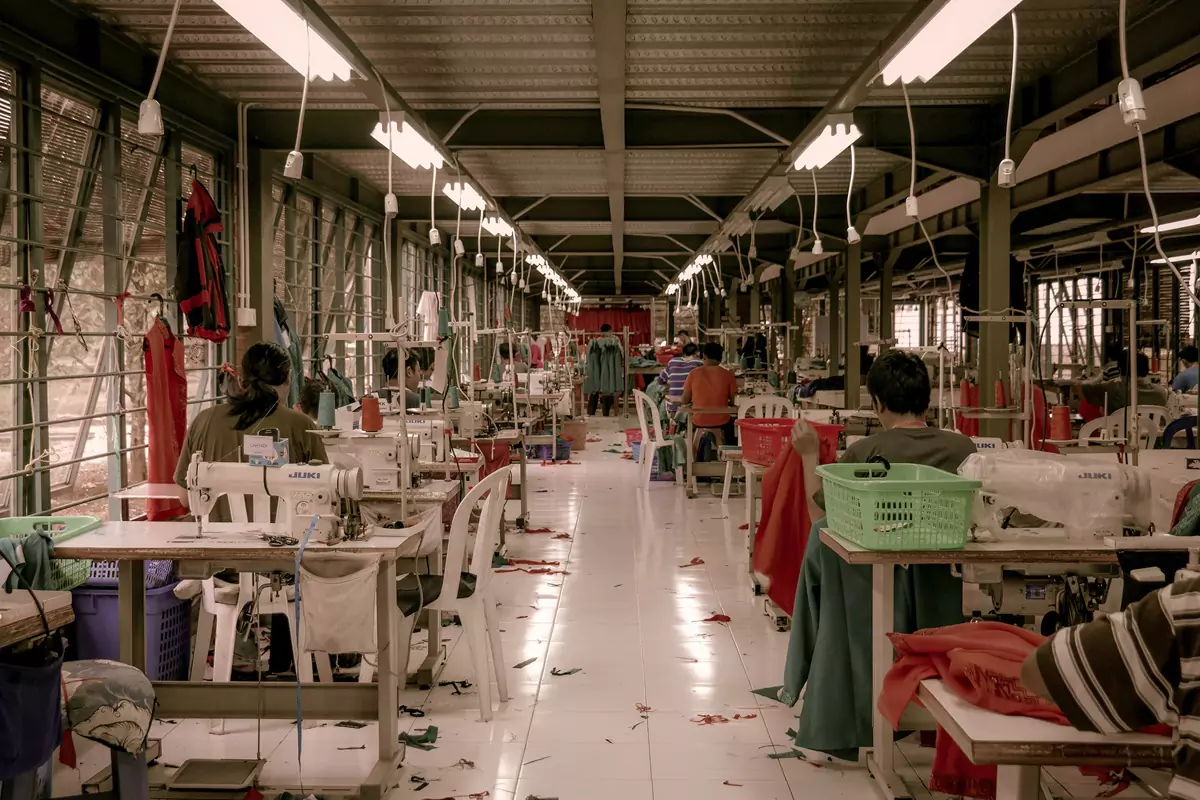Fast fashion might be a cheap way to keep up with the trends, the industry is a major source of pollution and may even be harmful to human health, which is why one young French politician has launched a campaign for change.
According to Antoine Vermorel-Marques, a 31-year-old member of the Les Républicains party, the inexpensive and often sweatshop-sourced clothing sold by fast fashion brands the world over is not only damaging the environment and causing untold harm to biodiversity, but also seriously threatening human health.
He argues that change is desperately needed and has suggested slapping a €5 supplementary charge on all fast fashion purchases.
In a video posted on TikTok earlier this month, Vermorel-Marques hit home the seriousness with which he takes this issue.
In the clip, which can be found here, the young politician unpacks a series of items from the low-end and predominately online retailers with whom he takes umbrage in a style parodying social media’s community of fast fashion influencers and describes the pieces in detail.
@antoinevermorel42 🛑 Les vêtements à 2€ qui arrivent en avion, contiennent des substances nocives pour la santé et finissent sur les plages en Afrique, c’est non ! Je dépose à l’Assemblée nationale une proposition de loi pour instaurer un bonus-malus afin de pénaliser les marques et pour encourager les démarches plus vertueuses ♻️ #shein#sheinhaul#ecologie#fastfashion#stopshein#pourtoi#fyp @lookbookaly @menezangel_ @loufitlove @lila_drila @cilia.ghass @tifanywallemacq @veronika_cln @lia__toutcourt @iamm_mae.e@IAMM_MAE.E ♬ son original – antoinevermorel
Picking up a pair of shoes from Chinese online mega-seller Shein, Vermorel-Marques notes that they have been “treated with phthalate, a substance which is an endocrine disruptor that can make us sterile”. Then he chooses a set of “so cute, so classy” baby clothes, remarking on how they have been doused with formaldehyde, a substance that “potentially causes cancer in babies”.
An estimated 92 million tonnes of clothing end up in landfill every year, with a large portion coming from online fast fashion titans such as the aforementioned Shein and its competitors, the likes of Temu and Boohoo.
Vermorel-Marques’ concept is to add a €5 surcharge on purchases from these cut-price imported brands while offering a counter €5 rebate on domestically produced and sustainably made items.
“What is key here is that it’s not another tax,” he says. “We’re not here to take money from you. We’re just saying: ‘If you pollute, you pay. And if you don’t pollute, you win.’ It’s a win-win for both the consumer and the planet.”
While opponents of the bill say it would penalise those on lower incomes, who can manage the minimal costs of fast fashion clothing – the average price of an item from Shein is €7 – but often cannot afford the more expensive but “better for the planet” pieces championed by Vermorel-Marques and are reluctant to buy second-hand items.
The bill is expected to be brought before France’s National Assembly for debate in the next few months.
Join the Monaco Life community – sign up for the Monaco Life newsletter, and follow us on Threads, Facebook, Instagram, LinkedIn and Tik Tok.
Photo source: Rio Lecatompessy, Unsplash
